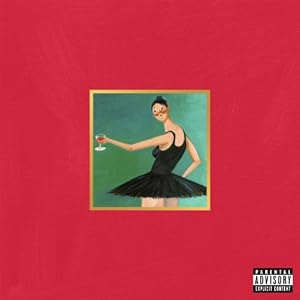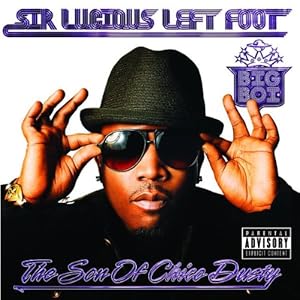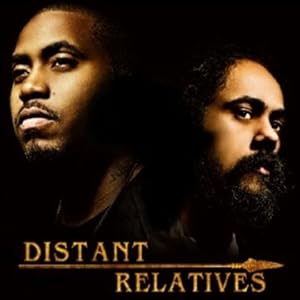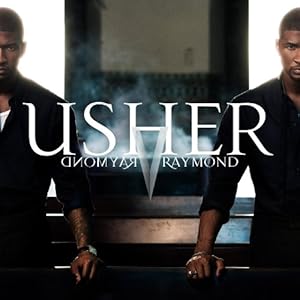
Friday, December 3, 2010
Kanye West -- My Dark Twisted Fantasy

Wednesday, October 6, 2010
Big Boi -- Sir Luscious Leftfoot: The Diary of Chico Dusty

Big Boi has been known as the other guy from Outkast for most of his career. Even a #1 single (“The Way You Move”) couldn’t get him out of Andre 3000’s considerable shadow, not with “Hey Ya” on the same double album. His new solo album “Sir Lucious Leftfoot: The Son of Chico Dusty” was stuck in label purgatory for four years, an ignominious fate for someone whose sold more than 25 million records worldwide.
But his relative anonymity has never been due to a lack of talent. His pinpoint breath control allows him to flow over almost any type of beat, something he takes full advantage of on “Sir Lucious Leftfoot.” He is as comfortable rapping over the laid-back soul sample of “Shine Blockas” (“the penmanship is so legit / I came equipped like an prophylactic”) as he is spewing syllables in rapid-fire fashion (“they got flour for tortillas and lettuce for enchiladas”) on club songs like “Shutterbug.”
There is an almost infinite variety of musical influences on the album, befitting the experimental style Outkast is known for. A top-notch production team, headlined by longtime collaborators Organized Noise, adds many musical touches, from electronic synthesizers to funk guitars, trumpets and orchestras, not often seen on a Southern rap album.
Like many rappers used to being in a group, Big Boi seems uncomfortable performing by himself. He recruited a bloated guest-list in place of Andre 3000, who was barred from appearing because of label politics. Of the album’s 15 songs, 12 have guest appearances.
The sheer number of guests and musical styles prevents Big Boi from putting his stamp on the album. On tracks like “Be Still,” a jazz-influenced ballad with Janelle Monae where he has only one verse, he feels like a guest on his own song. While Big Boi has the skills to be a star in his own right, “Sir Lucious Leftfoot” shows he might be more comfortable in the background.
Eminem -- Recovery

And over three wildly successful albums, het let us in. He painstakingly mined every aspect of his personal life for musical material. His life was an open book, his music a journal that all of America read. Audiences knew his wife, his mother and his daughter as well as they knew him.
But after the release of his semi-autobiographical movie “8 Mile”, Eminem faced a problem familiar to any memoir writer. He made his career by telling the story of his life, but now there was no longer any story left to tell.
So he turned to drugs for creative inspiration. The result, as he admits at the beginning of his latest album “Recovery”, was a disaster: “Hit my bottom so hard I bounced twice / Suffice this time around / The last two albums didn’t count / Encore I was on drugs / Relapse I was flushing ‘em out.”
What then would a sober Eminem rap about? “Recovery”, 17 self-loathing songs about the life of a depressed rap star, shows he still can’t look outside of himself. Fame and depression seem to have shrunk his world to the confines of his rap studio, and what at first sounds like self-reflection quickly becomes self-absorption.
The music matches the album’s dreary tone: dark beats with ominous instrumentation and far too many of his own attempts at singing. Not even a Lil’ Wayne assisted sample of Haddaway’s “What is Love” can bring much levity to the proceedings.
On “25 to Life”, he compares his relationship with rap to that of a battered spouse and fantasizes about leaving it behind: “Don’t think I’m loyal? / All I can do is rap / How can I moonlight on the side? / I have no life outside of that.” The irony is until he can find a life apart from rap, he will have distressingly little to actually rap about.
Wednesday, June 23, 2010
Nas & Damian Marley -- Distant Relatives

Friday, May 7, 2010
B.o.B -- The Adventures of Bobby Ray
![B.o.B Presents: The Adventures of Bobby Ray [Explicit]](http://ecx.images-amazon.com/images/I/61ittacn%2BeL._SL500_AA300_.jpg)
Wednesday, April 7, 2010
Usher -- Raymond v. Raymond

Just as Usher is releasing his sixth album,
The success of his biggest album (2004’s “Confessions”) in part stemmed from the pulled-from-the-headlines quality of some of his biggest songs, which revolved around him cheating on TLC singer Chili. In the years since, Usher has begun to see the downside of giving the world a bird’s eye view to his personal life.
As in “Confessions”, most of “Raymond v. Raymond” revolves around a failed relationship, this time a short-lived marriage with his hair-dresser. Once again, he has a confessional song over dark pianos about his infidelity (“Foolin Around”). And while he still acknowledges his culpability (“I guess it’s just the man in me / blame it on the celebrity / But it’s really just my fears / And it don’t try your tears”), he is far less self-critical than he was six years ago.
Instead he resigns himself to the inevitability of his actions, throwing his hands up at the very idea of fidelity: “I guess I’m guilty for wanting to be in the club / I guess I’m guilty because girls always want to show me love / I guess I’m guilty for living and having a little fun.”
And maybe in the world before TMZ, the look-the-other-way model of marital relations Usher proposes was feasible. Or as T.I. put it more bluntly on “I’m Guilty”, he has an “alibi” for cheating on his girl: the nice things he buys her. But the celebrity-obsessed tabloid environment makes it nearly impossible for Usher’s new bride to ignore his actions.
The combination of a singer single-mindedly focused on sex (the main thrust of every song and seemingly the only thing he looks for in women), the numbers of readily available women “who like [messing around] with a star” and marital commitment looks doomed to fail. So why, as an ESPN reporter asked Tiger Woods, get married in the first place? It’s a question that Usher, singing about being “ready to sign them [divorce] papers”, can’t answer.
Monday, March 8, 2010
Ludacris -- Battle of the Sexes

